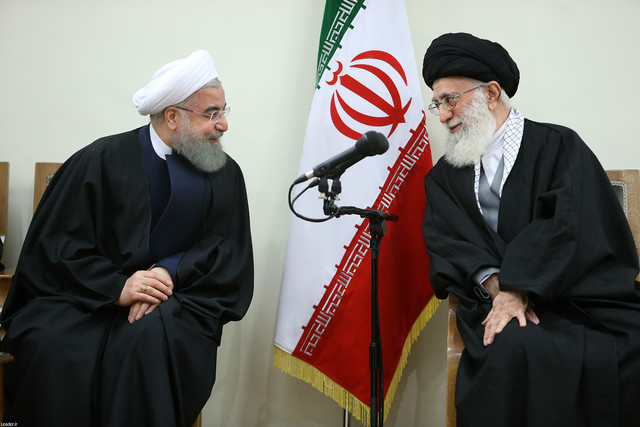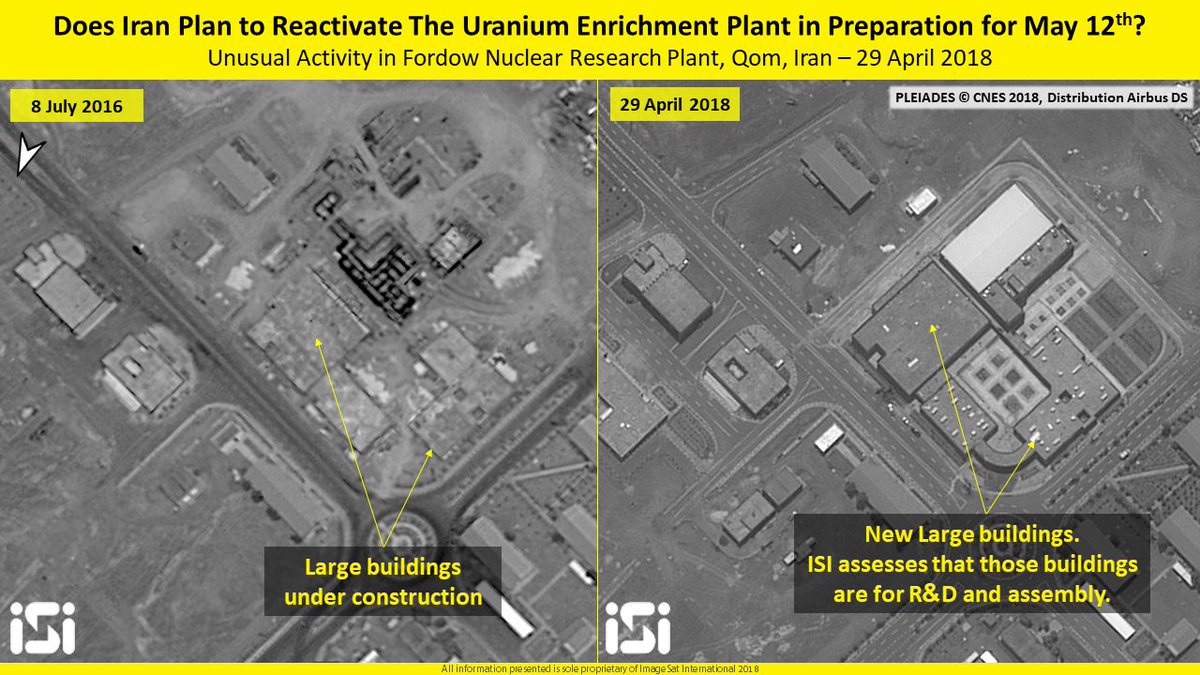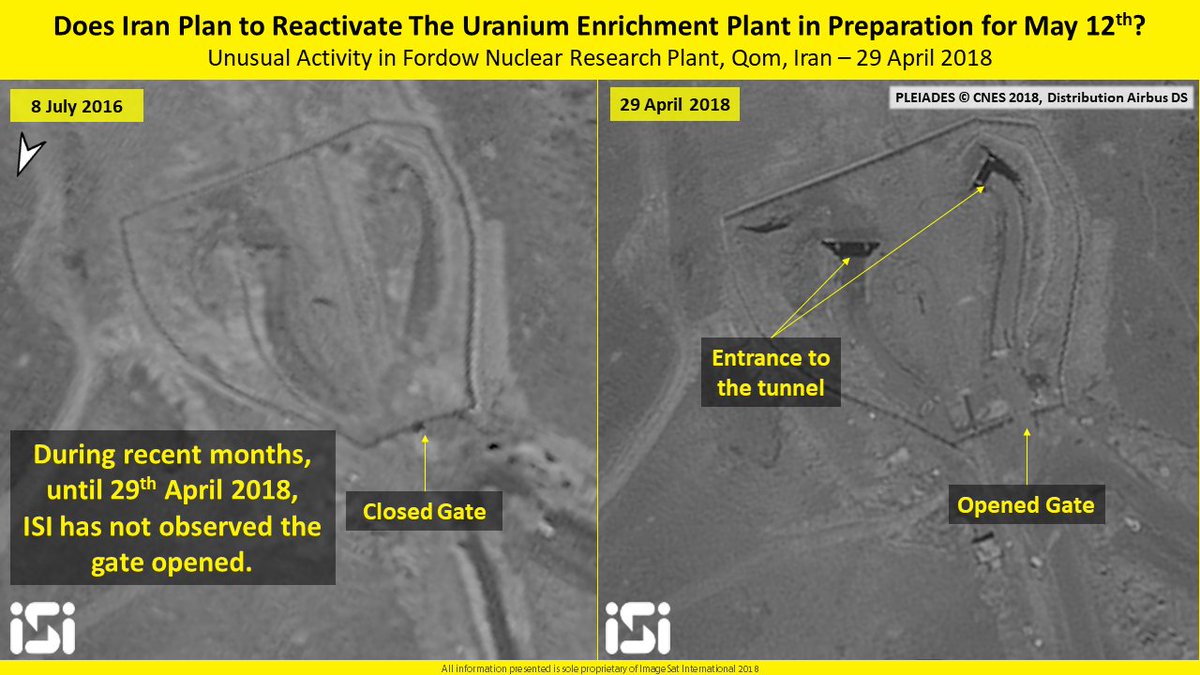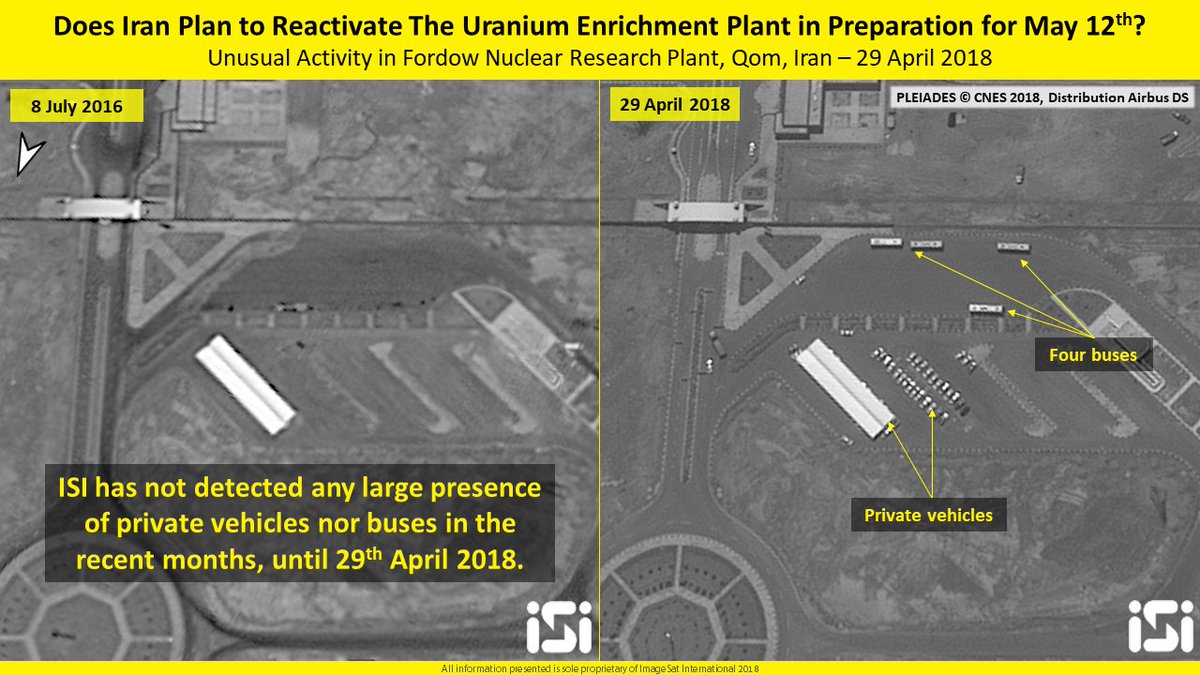Ever since Iran started negotiating the nuclear deal, Khamenei had been sceptical that the west would implement it without trying to subvert Iran. He made his opinions very public. And it looks like he was right.
 |
| "I told you so" |
The JCPOA was the first major diplomatic agreement made between Iran and the West since the revolution. It only took 3 years for the US to upend it, which it now looks imminent to do so.
Long Term Implications
The fact that Iran put so much political capital into this deal, with Khamenei putting aside his suspicions of the US to allow Rouhani to try and carve out an agreement shows how much of a blow this will deal to the Iranian psyche. We trusted a known enemy, while they made clear that they made an agreement not based on trusting Iran. The biggest flaw of the JCPOA is that it is vulnerable to American violations of their commitments to remove sanctions. Iran and the world are powerless to stop this. Possibly one of the worst blows is that Europe, instead of siding with Iran who following its commitments, seeks to instead appease a US administration globally agreed to be violating the nuclear deal, and one which is disliked by Europe itself. It tells Iran that even if it does everything by the book, it still cannot deal with the west. Mistrust and hostility towards the west will now be an institution, rather than a reaction to the west's policies. If Iran does ever engage with the west again, it must not give anything away. There is no benefit if we are not going to get anything in return. And we are certainly not going to negotiate our missiles or other defence capabilities.
What next for the JCPOA?
There are essentially a few possible fates that await the JCPOA.- The EU could join the US in sanctioning Iran fully, including imposing an oil embargo on Iran like in 2012. The chances of this happening are almost zero, but it appears to be one Iran has prepared for (at least rhetorically), by saying it could leave the NPT.
- The EU convinces Trump to stay in the deal, and allows him to impose some minor sanctions on the IRGC or Iran's ballistic missile program to save face. This is possible, but given Trump's strong investment in attacking the JCPOA, even Macron thinks he will leave it. The benefits of this are mixed - while the US would not re-impose sanctions, the hostile and uncertain atmosphere around the US' commitment would remain, scaring off investors.
- The US exits the nuclear deal and re-imposes unilateral sanctions, with the EU not following the US' lead. The EU could then choose to a) Revive EU blocking regulations to ensure investments of European firms in Iran, or b) Not enact further measures to protect the JCPOA while also opposing the US exit. This would not shut European firms out of Iran, but will further discourage them from investing in Iran. Scenario 3 could keep the JCPOA in a degraded state, with the P5+1 being partially out of compliance (because of the US exit), and Iran withdrawing from some of its commitments in response. A more dangerous option would be the slow unravelling of the deal in continued escalations and tensions, likely prompted by Trump. This is not advantageous as Iran will likely still be getting quite a large part of economic benefit out of the deal, though not as much as if all parties were in full compliance and certainly not as much as Rouhani said Iran would gain in hissatell election campaign.
Iran appears ready for all 3 paths.
In an interview with CBS, Zarif indicated Iran could resume its nuclear activities "at a much greater speed". An article on The New Yorker confirms this, and says Zarif also described how Iran could go through the 45 day dispute resolution mechanism of the JCPOA. Finally, Ali Shamkhani said Iran could even leave the NPT. The relative severity of these options indicate they align with scenarios 3, 2 and 1 respectively.
I have a strong feeling that scenario three will likely play out, judging by the atmosphere and statements by Iranian and western officials. Iran seems to think so too.
Below are images from a tweet by @imagesatint, the twitter account of a website that provides hi-res satellite imagery for defence analysis and data applications. I recommend giving them a follow if you have twitter. They occasionally post some of their content for free on twitter and these are the images:
Well, you can clearly see for yourself that Iran will likely re-activate Fordow if the US follows the expected 3rd scenario. Resuming enrichment at Fordow should be relatively easy and should have the desired political effect. Under the JCPOA, the following modifications were made to Fordow's role:
Iran's Fordow facility will stop enriching uranium and researching uranium enrichment for at least fifteen years; the facility will be converted into a nuclear physics and technology center. For 15 years, Fordow will maintain no more than 1,044 IR-1 centrifuges in six cascades in one wing of Fordow. "Two of those six cascades will spin without uranium and will be transitioned, including through appropriate infrastructure modification," for stable radioisotope production for medical, agricultural, industrial, and scientific use. "The other four cascades with all associated infrastructure will remain idle." Iran will not be permitted to have any fissile material in Fordow.
Assuming the "transition" has already been undertaken and is not reversible, Iran should be able to very quickly feed at least ~600 IR-1 centrifuges with uranium. This not only grants Iran a way to increase active centrifuges easily and without using significant, headline grabbing numbers, but also opens them in Fordow, which is a site of some importance for several reasons. It is another enrichment site apart from Natanz, which means that Iran's enrichment facilities will be distributed across two sites other than Natanz. Fordow itself is buried 25 metres underground, making it further harder to destroy. Finally, Fordow was used to enrich uranium to 20%, which Iran may choose to do if it feels it has been marginalised enough in the JCPOA, however Iran's ability to do this may be limited given the original 3000 centrifuges have been reduced to 1000, possibly with only 600 capable of enriching uranium.
Watch this space. This nuclear saga looks anything but finished.




Comments
Post a Comment
A few quick rules:
-No trolling, spam etc.
-Keep it civil, I don't want to see ad hominems.
-Anyone from any country or territory can comment on this blog, just bear in mind I won't be very patient with bullshit. This is a blog on Geopolitics and Military issues of Iran, where you can discuss this as you like. Don't come here with an agenda or a bone to pick.